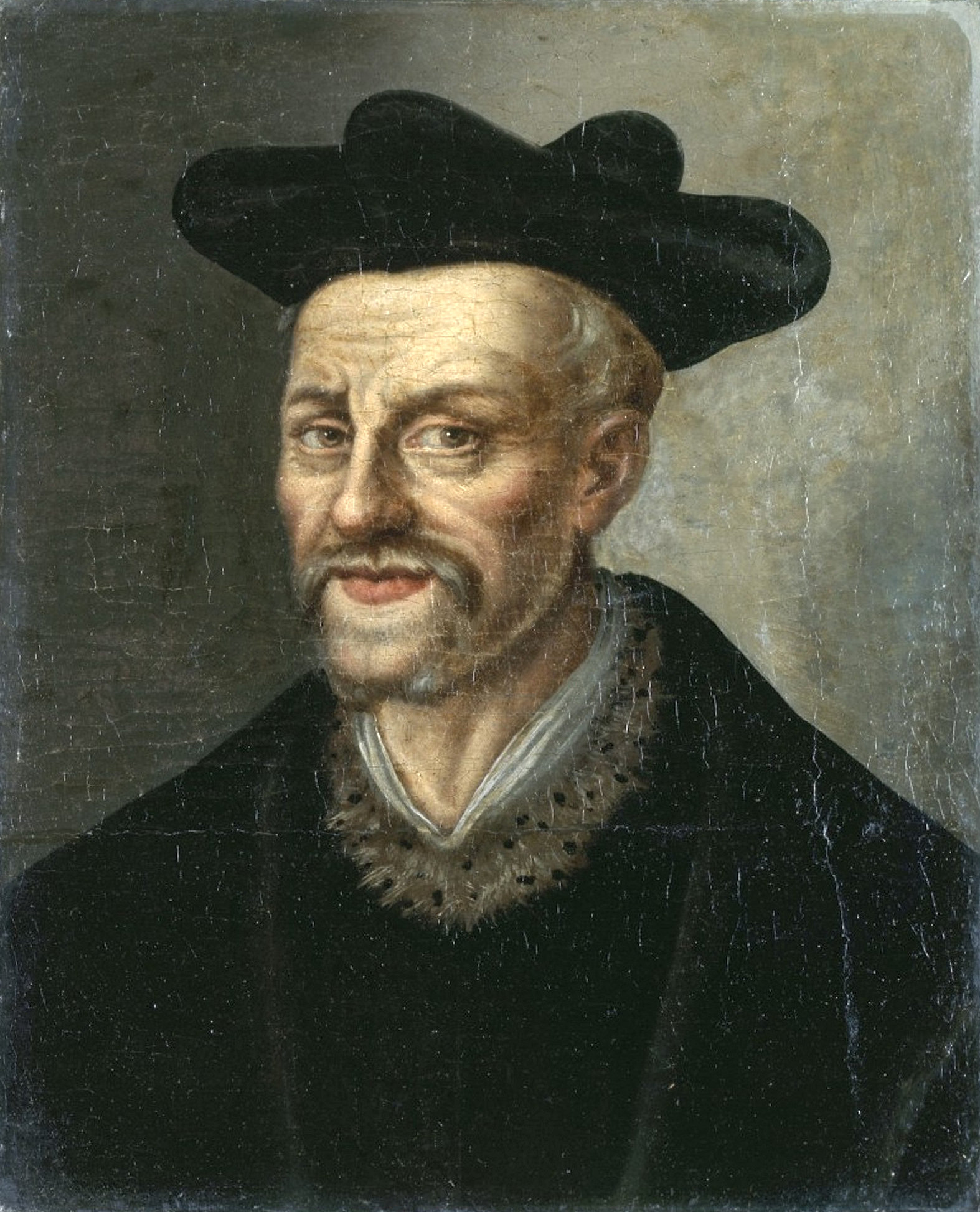Francois Rabelais frasi celebri
“Come potrei governare altrui, io che non saprei governare me stesso?”
libro I, cap. LII; 1925
Gargantua e Pantagruele
“Amici, voi noterete che al mondo vi sono assai più coglioni che uomini; ricordatevene!”
libro quinto, cap. VIII; 1925
Francois Rabelais Frasi e Citazioni
“Che se la sete non è presente, bevo per la sete futura.”
libro I, cap. V; 1925
Gargantua e Pantagruele
“La più vera perdita di tempo che conoscesse era contare le ore.”
libro I, cap. LII
Gargantua e Pantagruele
libro III, prologo; 1925
Gargantua e Pantagruele
“L'appetito vien mangiando, diceva Angest di Mans, ma la sete se ne va bevendo.”
libro I, cap. V; 1925
Gargantua e Pantagruele
“Nelle loro regole c'era solo una frase: fai quello che ti pare.”
libro I, cap. LVII
Gargantua e Pantagruele
“Fa di non aver ricevuto invano le grazie che Dio t'ha dato.”
libro II, cap. VIII; 1925
Gargantua e Pantagruele
“Non riesce a esser debitore chiunque voglia, non riesce a far creditori chiunque voglia.”
libro III, cap. III; 1925
Gargantua e Pantagruele
libro III, cap. XXXII; 1925
Gargantua e Pantagruele
Francois Rabelais: Frasi in inglese
“He that has patience may compass anything.”
Origine: Gargantua and Pantagruel (1532–1564), Fourth Book (1548, 1552), Chapter 48.
“Do not believe what I tell you here any more than if it were some tale of a tub.”
Origine: Gargantua and Pantagruel (1532–1564), Fourth Book (1548, 1552), Chapter 38.
“You have there hit the nail on the head.”
Origine: Gargantua and Pantagruel (1532–1564), Third Book (1546), Chapter 34.
“Let us fly and save our bacon.”
Origine: Gargantua and Pantagruel (1532–1564), Fourth Book (1548, 1552), Chapter 55.
En toutes compagnies il y a plus de folz que de sages, et la plus grande partie surmonte tousjours la meilleure.
Chapter 10 http://books.google.com/books?id=wfRKAQAAIAAJ&q=%22En+toutes+compagnies+il+y+a+plus+de+folz+que+de+sages+et+la+plus+grande+partie+surmonte+tousjours+la+meilleure%22&pg=PA285#v=onepage.
Gargantua and Pantagruel (1532–1564), Pantagruel (1532)
Origine: Gargantua and Pantagruel (1532–1564), Fourth Book (1548, 1552), Chapter 38.
“What cannot be cured must be endured.”
Origine: Gargantua and Pantagruel (1532–1564), Fifth Book (1564), Chapter 15.
“I drink no more than a sponge.”
Origine: Gargantua and Pantagruel (1532–1564), Gargantua (1534), Chapter 5.
“What is got over the Devil's back is spent under the belly.”
Origine: Gargantua and Pantagruel (1532–1564), Fifth Book (1564), Chapter 11.
“Scampering as if the Devil drove them.”
Origine: Gargantua and Pantagruel (1532–1564), Fourth Book (1548, 1552), Chapter 62.
“We saw a knot of others, about a baker's dozen.”
Origine: Gargantua and Pantagruel (1532–1564), Fifth Book (1564), Chapter 22.
“You are Christians of the best edition, all picked and culled.”
Origine: Gargantua and Pantagruel (1532–1564), Fourth Book (1548, 1552), Chapter 50.
Origine: Gargantua and Pantagruel (1532–1564), Fifth Book (1564), Chapter 15.
“Above the pitch, out of tune, and off the hinges.”
Origine: Gargantua and Pantagruel (1532–1564), Fourth Book (1548, 1552), Chapter 19.
Origine: Gargantua and Pantagruel (1532–1564), Fifth Book (1564), Chapter 20 : How the Quintessence cured the sick with a song
“By robbing Peter he paid Paul, … and hoped to catch larks if ever the heavens should fall.”
Origine: Gargantua and Pantagruel (1532–1564), Gargantua (1534), Chapter 11.
“This flea which I have in mine ear.”
Origine: Gargantua and Pantagruel (1532–1564), Third Book (1546), Chapter 31.
“The Devil was sick,—the Devil a monk would be;
The Devil was well,—the devil a monk was he.”
Origine: Gargantua and Pantagruel (1532–1564), Fourth Book (1548, 1552), Chapter 24.
Prologue.
Gargantua and Pantagruel (1532–1564), Gargantua (1534)
“You shall never want rope enough.”
Author's prologue.
Gargantua and Pantagruel (1532–1564), Fifth Book (1564)
“I believe he would make three bites of a cherry.”
Origine: Gargantua and Pantagruel (1532–1564), Fifth Book (1564), Chapter 28.
“Subject to a kind of disease, which at that time they called lack of money.”
Origine: Gargantua and Pantagruel (1532–1564), Pantagruel (1532), Chapter 16.
Origine: Gargantua and Pantagruel (1532–1564), Fifth Book (1564), Chapter 19 : How we arrived at the queendom of Whims or Entelechy
“The belly has no ears nor is it to be filled with fair words.”
Originale: …l'estomach affamé n'a poinct d'aureilles, il n'oyt goutte.
Origine: Gargantua and Pantagruel (1532–1564), Fourth Book (1548, 1552), Chapter 63.
“Send them home as merry as crickets.”
Origine: Gargantua and Pantagruel (1532–1564), Gargantua (1534), Chapter 29.
“Thought I to myself, we shall never come off scot-free.”
Origine: Gargantua and Pantagruel (1532–1564), Fifth Book (1564), Chapter 15.
Et guerre faicte sans bonne provision d'argent, n'a qu'un souspirail de vigueur. Les nerfz des batailles sont les pecunes.
Origine: Gargantua and Pantagruel (1532–1564), Gargantua (1534), Chapter 44.
“Appetite comes with eating, says Angeston. But the thirst goes away with drinking.”
Origine: Gargantua and Pantagruel (1532–1564), Gargantua (1534), Chapter 5.
“Thought the moon was made of green cheese.”
Origine: Gargantua and Pantagruel (1532–1564), Gargantua (1534), Chapter 11.
“He laid him squat as a flounder.”
Origine: Gargantua and Pantagruel (1532–1564), Gargantua (1534), Chapter 27.
